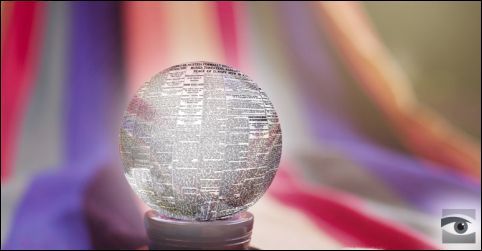Today’s Top Stories
1. After the International Atomic Energy Agency (IAEA) reported that Iran is in compliance with its nuclear commitments, the world lifted sanctions on the Islamic Republic. With the lifting of sanctions, $100 billion in frozen assets were released, the Islamic Republic can resume selling oil on the international market (more on that at the Financial Times via Google News), and also rejoin the international banking system.
Secretary of State John Kerry lauded the developments, saying, “the United States, our friends and allies in the Middle East, and the entire world are safer.”
But Jerusalem responded by insisting that Israel will keep a close eye on Tehran’s nuclear program and notify of any violations. More on how it’s playing out in Israel at Reuters. And what were they saying in Iran?
Rouhani: Only Zionists, warmongers, US extremists oppose sanctions lifting
Amidror to Israel Radio sums up differences with US on Iran. US: deal stops nukes for 15 yrs, then who knows. Israel: 15 yrs. ends in 15 yrs
— Herb Keinon (@HerbKeinon) January 17, 2016
Iran and the US also released prisoners. More on all the developments — plus commentary — below.
2. PA security arrested an aide to chief negotiator Saeb Erekat, accusing him of spying for Israel. Jerusalem Post coverage.
3. Israel is battling an EU resolution that would call on its member states to explicitly restrict treaties with Israel to within the 1967 borders, thus excluding settlements. According to YNet, EU foreign ministers are expected to approve the resolution on Tuesday.
Israel views the wording of the proposal with great concern and is working behind the scenes in order to soften the proposal. The Foreign Ministry has distributed guidance to Israeli ambassadors in Europe on how to respond to their contacts regarding the issue.
Policy officials in Israel said that the wording in the new proposal proves that the labeling initiative was never about consumer protection, as the EU claimed, but was in fact a political maneuver to fight against the settlements.
Israel and the Palestinians
• A Palestinian trying to stab soldiers near Nablus was shot and killed today.
• The Times of Israel visited the Jenin and Balata Palestinian refugee camps to find out why the rest of the West Bank hasn’t joined the stabbing and car-ramming intifada.
“How do you explain the fact that no resident of the camp took part in the ‘intifada of knives’ over the past three months?” I ask him.
“It’s not an intifada. It’s a fad,” he says. “Jenin, Nablus, Tulkarm, Jericho — nothing is happening in any one of those places. Things have calmed down even in Hebron. True, people were killed there, but it’s a passing phase. The ones that created this intifada were the media and Facebook.
“And let’s be honest,” he continues. “What did we gain from the Second Intifada? What did we get?”
• Senior IDF officers visited a number of Palestinians imprisoned for carrying out stabbings and car-rammings in the last few months to learn more about their motives and find patterns of behavior. Haaretz describes what they found out.
Two main understandings have come out of these sessions: One, which is heard in every discussion with senior officers dealing with the matter, is that Israel is facing a long-term, persistent phenomenon. Two, improving the tactical operations of the troops on the ground may help reduce the number of those killed and wounded (and it seems has some effect on reducing the number of attempted attacks), but the present response is far from being perfect, especially in terms of intelligence . . .
The choice of the locations also stood out – specific locations of friction between Palestinians and IDF forces. Over 60 percent of the attacks in the West Bank took place at only seven well-known locations, including the Gush Etzion junction, the Beit Anun junction north of Hebron and in the Jewish enclave inside Hebron. The stabbers wanted to attack symbols of the Israeli occupation, but also to take revenge – to return to places where terrorists had been killed previously, and carry out an attack.
• It never fails to annoy me when papers go overboard on settlement activity in the West Bank area near Jerusalem and Maale Adumim known as E1, claiming it cuts off Palestinian territorial contiguity. Case in point is The Economist, with the hyped-up headline, “The doomsday settlement.” But despite the hype, E1 doesn’t cut the West Bank in two.

• Gazans celebrated the completion of the first 1,000 apartments built by Qatar. According to AP, families will be able to move into Hamad City (named after the former Qatari ruler, Sheikh Hamad bin Khalifa Al Thani) in about two months, pending the completion of roads and work on the water system.
• Hamas rejected an Iranian offer of funding that came with a big string attached: Tehran wanted the Palestinian terror group’s support in its power struggle with Saudi Arabia. Picking up on Arab media reports, the Times of Israel writes that Hamas chief Khaled Mashaal didn’t want to alienate Sunni allies.
 • Inside Higher Ed on the latest in the academic war on Israel:
• Inside Higher Ed on the latest in the academic war on Israel:
The Association of American Universities on Thursday issued a statement affirming its opposition to the movement to boycott Israeli universities. The AAU formally opposed the boycott movement in 2013, but opted to affirm its position in light of the recent overwhelming vote at the American Anthropological Association’s annual meeting to back the boycott. (That vote is awaiting approval of the association’s membership.)
• According to Turkish media reports, Israel and Turkey are very, very close to an agreement to re-normalize relations. How soon?
Turkey has also insisted that Israel lifts its siege on Gaza in return for normalizing relations. According to my source, this condition will be interpreted as meaning “lifting the embargo on Turkey.” In other words, what Ankara asks is for it to become easy for Turkey to deliver aid to Gaza, and that third countries are able to supply aid to Gaza via Turkey.
• Jewish vandals deface Mount Zion’s Dormition Abbey with anti-Christian graffiti. AP coverage.
• From Bar Rafaeli to Gilad Shalit: How Gaza hackers are targeting Israelis
• For budgetary reasons, Israel’s shutting down five diplomatic missions abroad, including its embassy in El Salvador. The Central American country’s reaction?
Ynet reports that El Salvador threatening to move its embassy to Ramallah in retaliation for Israeli move to close embassy in San Salvador
— Chemi Shalev (@ChemiShalev) January 17, 2016
Iranian Atomic Urgency
• Reuters: In negotiating to free Americans in Iran last month, the US blinked on new sanctions in response to an October ballistic missile test.
But Kerry’s decision not to call Iran’s bluff in December shows how months of clandestine negotiations to free Rezaian and other Americans became deeply intertwined with the final push to implement the nuclear deal, despite the official U.S. line that those efforts were separate.
A U.S. official said on Saturday there was no connection between the nuclear deal and the release of the Americans.
• Who were the people released in the prisoner swap? Washington Post correspondent Jason Rezaian, Boston-area student Matthew Trevithick, former US Marine Amir Hekmati of Flint, Mich., and Boise Idaho pastor Saeed Abedini.
But a Jewish American man missing in Iran for nine years, remains behind. Tehran committed itself to finding the whereabouts of Robert Levinson, a former FBI agent from Coral Springs, Fla.
His family has acknowledged in recent years that Levinson, a father of seven, had been working for the CIA in a rogue operation at the time of his disappearance from Iran’s Kish Island.
Iran denies official involvement in his disappearance and the Washington Post quoted an anonymous U.S. official as saying that as part of the exchange deal, Iran “committed to continue cooperating with the United States to determine the whereabouts of Robert Levinson.”
https://twitter.com/nyc_oz/status/688490378362748928
• Media kept news of possible prisoner exchange quiet for months. And editor Ryan Grim explains why the Huffington Post sat on the story for months, even when it had a source in the State Dept. willing to speak on the record about the clandestine talks. What do you make of this snippet?
At times during the reporting process, it seemed as if the benefits of publishing were coming close to outweighing the risks. If talks stalled out, perhaps breaking news on them could kickstart them again.
This thought process itself, this gaming-out of the ramifications of publishing news, is foreign to a reporter’s way of thinking. “We report, you decide” may be a discredited slogan, thanks to the cable network that has abused it in such an Orwellian way, but it does still accurately describe what motivates nearly all journalists. But at HuffPost, we acknowledge — celebrate, in fact — that we are not merely disinterested observers of the news, but active participants in it, whether we like it or not. With that acknowledgement comes certain responsibilities.
• Israeli diplomat Dore Gold was a guest at the Woodrow Wilson Center, where he discussed the latest developments with the Palestinians, Iran, and Islamic State. I couldn’t find a video of his full talk, but what Gold had to say in response to audience questions is worth watching.
Around the World
• Anti-Israel reporter loses case at German Press Council. The Suddeutsche Zeitung is Germany’s largest newspaper.
Honestly Concerned, a Frankfurt-based pro-Israel media watchdog, had filed a complaint alleging that Thorsten Schmitz, an SZ journalist, falsely stated in his article that “tens of thousands of Israelis fled” their country and sought refuge in Germany. . .
Ritzmann said that Schmitz’s contention that Israelis are fleeing Prime Minister Benjamin Netanyahu’s government cannot be defended as a personal opinion, because the claim concerns numbers of emigrés who either exist or do not exist. She further argued that Israelis who relocated to Germany were impelled by multiple factors, and their motivations cannot be limited to Israeli politics.
• Kuwaiti student expelled from French university over anti-Semitic Facebook posts
• The French kippah debate continues as Jewish community asks, Is wearing your faith a risk, or a right?
• New Argentina AMIA investigator eyeing trial in absentia.
• World Sailing investigation reaffirms ‘no discrimination’ policy after Israeli youth sailors were barred from competition in Malaysia.
Commentary/Analysis
• Nice to see staff-eds in the Washington Post and Los Angeles Times denouncing in no uncertain terms restrictions on Palestinian journalists by the Palestinian Authority and Hamas.
Like Winston Smith after his “re-education” in “1984,” or Randle McMurphy after his lobotomy in “One Flew Over the Cuckoo’s Nest,” Ayman al-Aloul seems to have been vanquished by the authorities.
• Plenty of commentary on the Iranian developments.
– Aaron David Miller: How Iran got what it wanted from the nuclear deal
– Eli Lake: Kerry thanks Iran for resolving the crisis it created
– Norman Bailey: Obama’s millennial delusion
– Boaz Bismuth: The apple of Obama’s eye
– Jonathan Tobin: What detente with Iran really means
– Elliott Abrams: Our new ally, Iran
– Daily Telegraph: Historic windfall will test Iran’s true intentions (staff-ed)
– Yossi Melman: Lifting of sanctions could endanger the Islamic regime
– Joel Simon: Why was Jason Rezaian released? The answer tells us everything
– Kelly McBride: Should news organizations participate in media blackouts?

• Here’s what else I’m reading this weekend . . .
– Noah Feldman: Sweden’s foreign minister misunderstands international law
– Danny Ayalon: Time for Israel to close its embassy in Sweden
– Irwin Mansdorf: The psychology of Palestinian “lone-wolf” violence
– Noam Amir: As Gazans suffer through winter, Hamas’ face is to war
– Amos Harel: Gazan time bomb is ticking ever louder
– Khaled Abu Toameh: How (and why) Palestinian leaders scare the world
– Guy Milliere: Palestinian acts of “peace”
– Bassam Tawil: Who is betraying the Palestinians?
– Mordechai Kedar: Death and shame: End of the line for Nasrallah?
Featured image: CC BY Walter Watzpatzkowski
For more, see yesterday’s Israel Daily News Stream and join the IDNS on Facebook.
Before you comment on this article, please remind yourself of our Comments Policy. Any comments deemed to be in breach of the policy will be removed at the editor’s discretion.

